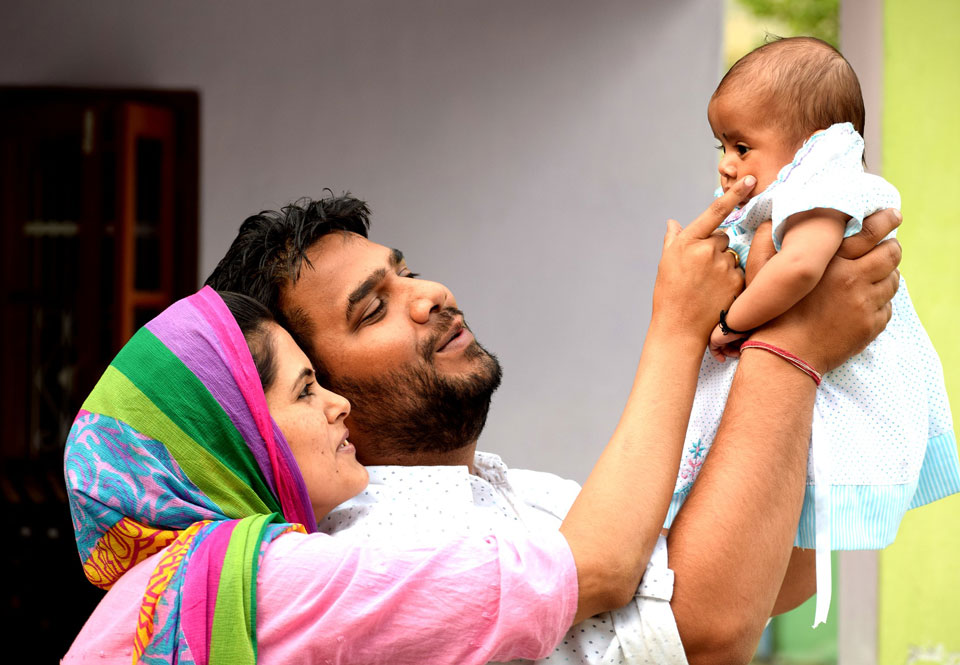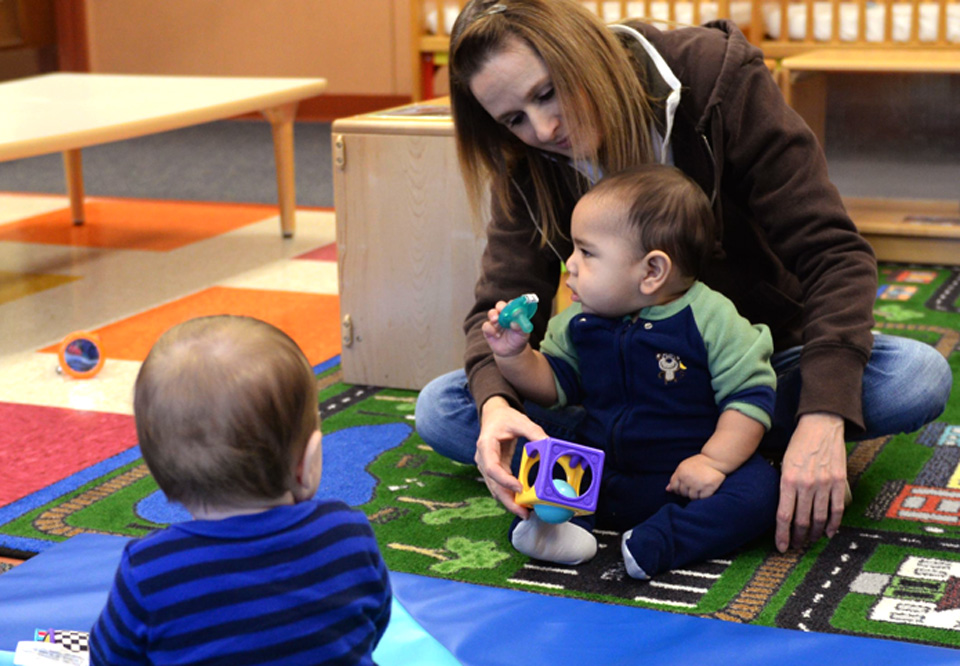The brain is already processing sounds, voices and language rhythm in the womb. Babies come into the world already primed for language.
However, speech can only be learned if it is heard. The more words you use and the frequency with which you talk to your child will enhance your child’s vocabulary, even if the words are yet to be understood.
Language and development
Language is important for a baby’s development. It is used to communicate, build relationships, express emotions and learn.
A baby needs to hear a language in their usual environment by the people with whom they interact. Without any interaction (like hearing talking on TV), language does not have the same impact on brain development.
At birth, your baby is ready for some form of communication. For example, your baby will start communicating by looking into your eyes and will stop by looking away. Your newborn baby can hear a wide variety of sounds. They prefer the sounds of voices and other complex sounds. Newborns prefer happy sounding talk, not speech with negative or neutral emotions.
Talking to your baby
When your baby hears you talk, the language areas of the brain are stimulated. The more language your baby hears, the more these areas will be stimulated and grow. Long before babies can speak, they understand the emotional meaning of speech.
How your baby’s language skills grow depends on the development in the language areas of the brain. This can take time and happens mostly during the first four years of life.
What if we speak more than one language?
Bilingualism is common and the brain is so sophisticated and ready to learn that it can absorb and process multiple languages at the same time. If there is more than one language spoken in your home, your baby will be able to process the difference.
Children have no problem learning more than one language, as long as they hear them from a young age. They also need to be supported and have a consistent language environment to learn well.
What can parents do?
- When your baby cries, respond to them in a sensitive and nurturing way. Your baby will learn that the world is a safe place.
- When your baby coos or babbles at around two months of age, delight in their interaction and respond with talking and sounds.
- When you and your baby are looking at the same object, comment or name what your baby is seeing. Excite them and talk about the object’s shape and colour.
- Talk about everyday activities, things and objects to your baby. Research has shown that how much an adult talks with their child in the first few years of life affects their language development and eventual success at school.
- Play games with your baby, sing songs and nursery rhymes, and enjoy large picture books together.
- Use a higher pitch or expressive voice, commonly called a “sing-song voice”.
- Pause before continuing a sentence and use gestures to support your verbal meaning. This type of speech helps your baby notice the emotional meaning and important parts of the conversation. They will be more likely be attentive when you speak like this.
Want to know more?
Read more about reading to babies and newborns
Raising Children Network – Language development: an amazing journey
Raising Children Network – Thinking and imagining: newborns






